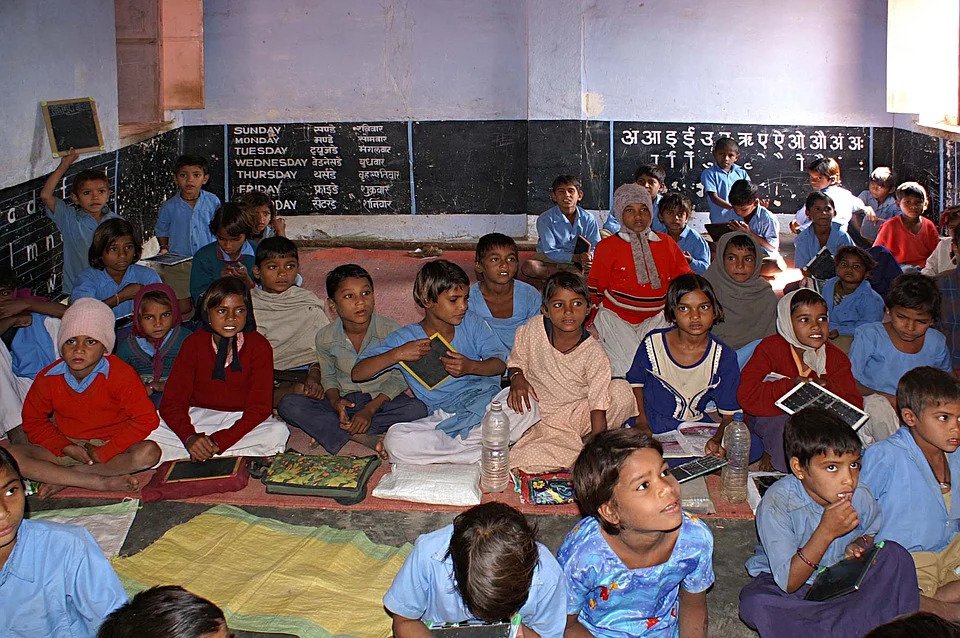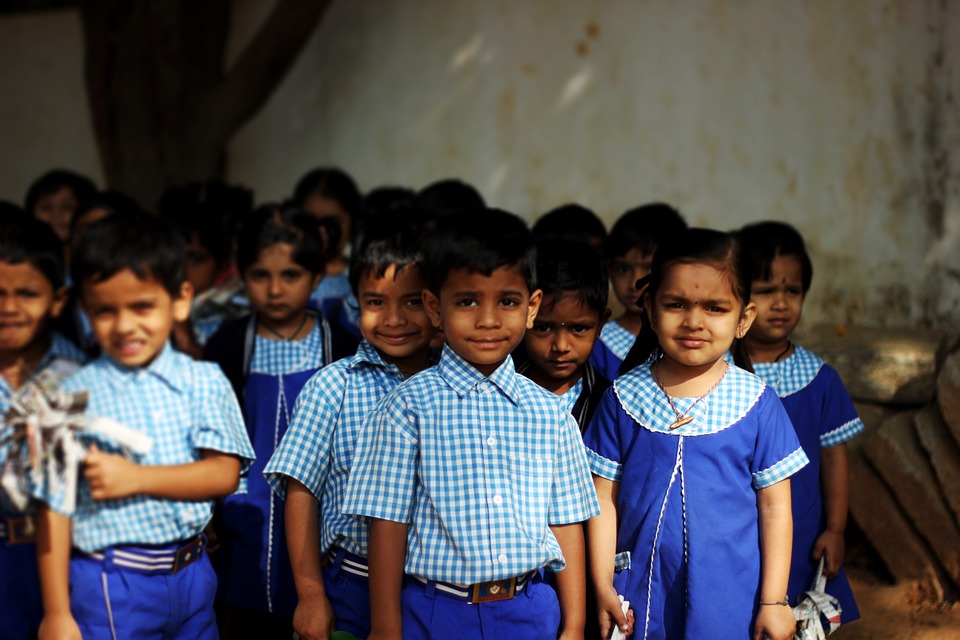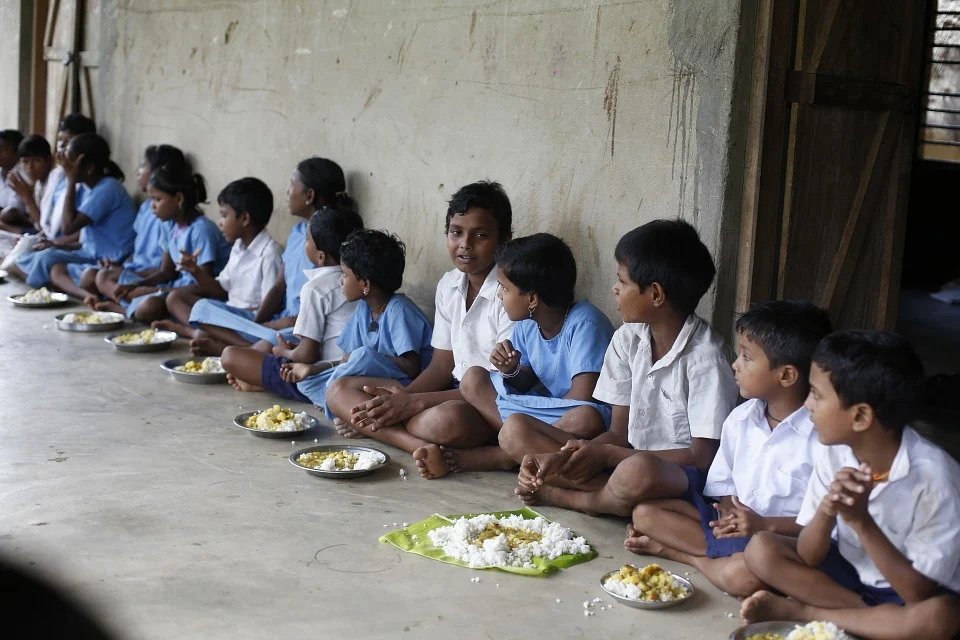Why do the parents send their children to private playgroups and not to the Anganwadis?
The primary reason, according to the experts, is that children coming to these Anganwadi centres remain in the same class, while the private playschool children go from junior to senior

Mandangad, Ratnagiri district
Launched by the government in 1975, the Integrated Child Development Services (ICDS) is one of the world’s largest, most comprehensive programme for children under six years of age and their mothers. The services which are offered through a network of more than 1.3 million Anganwadi Centres (AWC) across the country are related to the overall development of the child and has preschool or early childhood education as one of its primary components.
Preschool education makes the child not only school-ready but helps develop their social and emotional skills. Besides providing proper nutrition, the Anganwadi Worker (AWW) conducts activities aimed at developing language, background knowledge, sensory and cognitive abilities in children. These abilities are best developed in the mother tongue of the child than in a language that’s not spoken in the family or in the vicinity. However, despite offering these integrated services free of cost, the Anganwadi workers are not the first choice for parents who prefer sending their children to English medium private playgroups rather than these centres.
“The trend is no more limited to just metros and Tier II cities; it has seeped into the rural areas as well,” said Shalaka Pawar, an Anganwadi Worker (AWW) who works in Vesvi-Nandgaon village in the Mandangad block in Ratnagiri district in Maharashtra. Explaining the reason behind this trend, Sangeeta Dive, an AWW from Ambavne Khurd centre shares that children attending the centres are there for three years yet they remain in the same class, while the private playschool children go from junior to the senior nursery. Parents have an issue with the lack of a classification of lower and upper grades at Anganwadi.
“At our centres, we work on the sensory, physical, motor, language and social development of children. We also teach them nursery rhymes in Marathi and English. We introduce them to numbers and alphabets using games and colourful charts specially created for the purpose, yet parents choose private playschools for their children as they have gradation system,” said Dive, who believes that gradation of classes is required for AWC to remain relevant.

When English becomes a USP
With an increase in the influx of migrant workers due to the rapid development of infrastructure in and around Mandangad town, the number of children learning in a language other than their mother tongue is growing rapidly in the town and in rural areas. Selling the popular belief that knowledge of the English language is essential for better employment opportunities, some city-based educational chains have lured these workers in sending their children to their private centres.
Against the tall claims, the teachers employed at these private pre-primary nurseries are untrained. Most of the scholars are in agreement that to reduce costs, private players appoint untrained or less-qualified teachers on a contract basis thus raising doubts about their quality of teaching and learning process.
As anything under the banner of ‘English-Medium’ sells, these private pre- primary schools have a field day at the expense of parents who struggle hard to make the ends meet. “They charge anything between Rs 500 and Rs 1,000 a month while AWCs charges nothing. The class takes place in a cramped room in which they are taught English nursery rhymes, the meaning of which is not fully understood by the untrained teachers themselves. And on the other hand, the rhyme’s imagery has no connection with the local ethos,” said Suhasini kajare, an AWW at Nargoli pointing that these schools do not even provide free nutritious meals to children like the AWC.

Rote Learning
Low-income families have aspirations and are willing to pay for quality education for their children. Unfortunately, contrary to the expectation of such families, most children in the private nursery are not school-ready as they follow developmentally inappropriate and rote learning pedagogy.
“Children entering Grade 1 or aged 5+ should be able to count numbers up to 20 and conduct simple addition and subtraction, complete a 4-12-piece jigsaw puzzle and begin to read simple words. However, when the children coming out of the private pre-primary schools enter Grade 1, they are unable to count numbers. They can’t spell even a single word,” rued Dinesh Pednekar, a social worker from Mandangad.
Low-income households in India typically earning anything between Rs 9,000 and Rs 20,000 a month, spend an unrealistic amount of their income on private sector education. Sending children to English Medium private preschool is perceived to be among the most important investments for their development.

The entry of private players in the pre–primary education in the Indian hinterland is a worrying trend on several counts. The children attending the so-called pre-schools are deprived of proper nutrition and stimulus that goes to develop the motor movement and cognition.
According to Nina Joshi, the ICDS supervisor at Mandangad block: “Children born into poor and socially-disadvantaged families are likely to enter school with an academic disadvantage because without preschool intervention, they may not get the stimulation they require.”
These private pre-nursery schools are negatively impacting the existence of the AWC. There is an urgent need for the policymakers to ensure that any such private intervention should not influence the results of a well-thought, well-organised government scheme. In this case, it is important to gain the trust of the migrant workers and convince them to send their children to AWC for the overall development of their children instead of wasting money on these private players.
The article has been source from charkha.org

